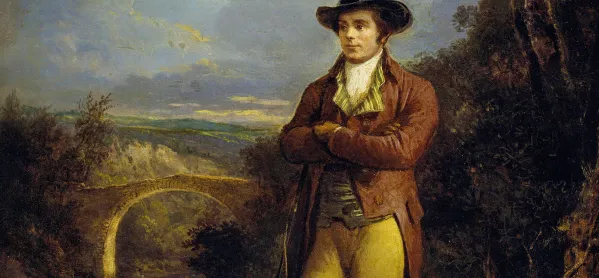
Scots language has a place in schools - but where exactly?

I was looking at some fiction by the writer Anne Donovan in class recently, and our discussion quickly jumped from what the stories were about, to how they were written. What were we seeing exactly, with all those funny spellings - the “mibbes” and the “wisnaes”?
My pupils offered the usual suggestions: the stories were written in Scottish “slang”, or maybe with a Scottish “accent”; no matter the label, it just wasn’t “proper” English. Familiar enough responses to hear in the classroom - when I was an undergraduate student, I took a unit in linguistics, and the exact same ideas were discussed. Struggles with the Scots language are certainly not limited to our teenagers.
Before we go any further, I will state that Scots is a language - not a vernacular, or a dialect. It is a rich linguistic thread that binds our country’s history, literature and the present day.
However, I do find meaningful teaching of Scots a real challenge in a school environment. It’s easy enough to do a couple of gimmick lessons here and there, put a big tick through Burns Night on the calendar, and move on. But I’m not sure who that truly benefits.
- Long read: Why learning Scots is having a moment
- Quick read: ‘Using Scots language in class is immensely valuable’
- Miss Punny Pennie’s advice: 4 top tips for using Scots language in the classroom
I’ve taught in various rural and inner-city schools, both in the Highlands and the Central Belt, and have yet to work with a group of children who speak confidently or fluently in Scots, rather than standard English, in their daily lives. More often, their linguistic influences come from America or online trends. When they do use Scots, it is often intended to be comedic, banter, something of a parody; not to be taken seriously.
Yet, Scots literature is having a wild renaissance, largely fuelled by social media opening up avenues for new writers to engage directly with readers. You only need to look at the novelists Ely Percy, Graeme Armstrong and Emma Grae, the poetry and songs of Len Pennie, Billy Letford and Iona Fyfe, and the television documentaries featuring Chris McQueer, Alistair Heather and Billy Kay. Scots is alive in 2022, and it is real.
In April, the Scots activist Billy Kay addressed MSPs in the Scottish Parliament, speaking entirely in Scots - you can watch it here. The subsequent online stooshie (his own descriptor) made for hard viewing, as a variety of roasters (my descriptor) piled in with personal abuse. It is within this kind of climate that teachers need to justify and plan their own use and education of Scots in the classroom.
The Scots language is firmly ensconced within the Curriculum for Excellence, meaning that educators across the country ought to be building the language into their teaching and learning practice. But it can be hard to reconcile this, especially for teachers who are not fluent or confident with Scots themselves, who are in turn typically working with students whose linguistic frame of reference is derived more from social media and reality television.
In his speech, Kay said that politicians could “gie a signal tae weans in the schuil that the culture o their hame is valued bi fowk electit by their mithers an faithers,” and that “Scottish weans [were] transformed learnin a Scottish leid”.
Theoretically, I can’t disagree with these sentiments. I know that Scots is used to marvellous effect by some teachers in some classrooms. The Scots Teacher o’ the Year award recognises such innovation and achievement, but I would be interested to know just how many (or how few) teachers feel secure enough in their Scots teaching to be recognised in such a way.
I am not trying to decry the Scots language’s position in the curriculum here, or at least I don’t think I am: it belongs. Rather, I am trying to express my own concerns, discomforts and lack of confidence, in the hope that other teachers in Scotland share these.
It’s not that I want to ignore Scots, but in a bulging curriculum, where does it fit? Maybe I instinctively feel that Scots is a societal skill, difficult to quantify, thriving on social factors rather than being shoehorned into the classroom. In terms of value and long-term skills, how many classroom hours is Scots worth? And should I prioritise it over Shakespeare, classic American literature, and contemporary poetry?
Maybe I am overthinking things. Len Pennie’s wildly successful series explaining a Scots word of the day is always fun, bright and informative, combining heritage and knowledge - and this is something we can all learn from.
Alan Gillespie is principal teacher of English at Fernhill School, near Glasgow, and a novelist
You need a Tes subscription to read this article
Subscribe now to read this article and get other subscriber-only content:
- Unlimited access to all Tes magazine content
- Exclusive subscriber-only stories
- Award-winning email newsletters
- Unlimited access to all Tes magazine content
- Exclusive subscriber-only stories
- Award-winning email newsletters
You need a subscription to read this article
Subscribe now to read this article and get other subscriber-only content, including:
- Unlimited access to all Tes magazine content
- Exclusive subscriber-only stories
- Award-winning email newsletters
- Unlimited access to all Tes magazine content
- Exclusive subscriber-only stories
- Award-winning email newsletters
topics in this article



